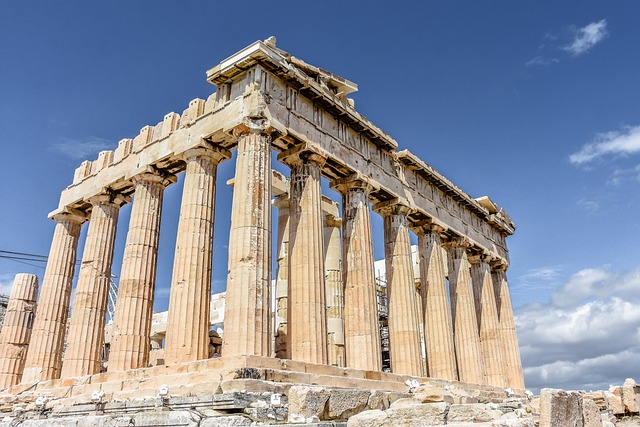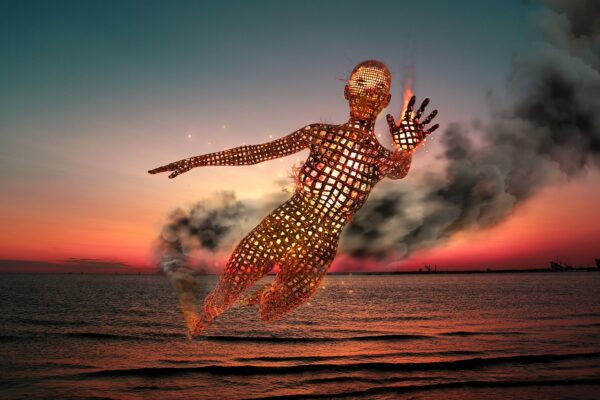
Since ancient times, new thinkers and founders of different philosophies have been enemies of society, or better said, enemies of tyrannical leaders. They were heavily persecuted as their wisdom teachings and insights were primarily founded for people to understand the proper incentive to use power, which, to them, of course, was a personal responsibility. Many of these teachings, as we still see in our beloved modern society, were censored and had to be taught in secret. Often, these secret teachings were the cause of so much pain and suffering as they were sought out by those who were in power and who felt threatened by them. These teachings go back as far as Crephylus, Pherecydes, the Phoenician schools, and others. Many Greek philosophers had to travel to Egypt and spent decades seeking enlightenment and deepening their studies as they knew what their purpose and mission were for the future to come.
As I’ve done my usual and thorough research on some of these teachings I will be discussing in this post, I am astonished to see how they still apply to our modern society, and I can confidently conclude that they are a tool of reformation for the soul, for the individual and therefore, for the world. As I change myself, I change the world. These philosophers did not only study schools of different thought, but they also studied complex mathematics, including geometry, chemistry, music, music theory, and much more. Their intellect and intelligence exceeded the complex attention-deficit/hyperactivity disorder of the little minds of our modern society today, and I believe that anyone would be greatly humbled if they were in their presence. These philosophers returned home well into their 50s before establishing their schools and finding devotees for their mission to come to life.
These Greek teachings were first taught by word of mouth, and the first devotees were responsible for bringing this new wisdom into the minds of the people. Some of the most interesting questions among many, of course, were: What is the most just thing? The answer was to sacrifice. And what is the wisest thing? The answer was number. So many of these teachings and maxims passed down since ancient times had layers of meaning but were subject to much criticism and speculation in the years to come. While many say that history likes to repeat itself, it is actually the people who repeat past behavior. Unless we begin to acknowledge these patterns of behavior that bleed outside our own little lives, then it is very likely that the same timeline will be in effect from generation to generation, regardless of the difference in time or place.

Greek maxims that are still relevant to the psyche of the individual:
“Tear not to pieces the crown.” This is one of my favorites. This maxim highlights the importance of taking responsibility for our own well-being and our own perception of self. If you are unable to match the joy of another, do not reduce their happiness in a selfish act. Do not be a joy killer and bring them down to your level. When you see someone walking in their power and having claimed their inner light, do not attempt to distort it, mold it, or project and destroy it to make yourself feel better about yourself.
“Do not eat the heart.” This maxim highlights the importance of not drowning in our sorrows but being able to face our challenges with more optimism and strength. I would say most of us lean toward a more pessimistic mindset when we are faced with unexpected challenges, but we have to develop the ability to snap out of it and empower ourselves enough to overcome those challenges. In the Greek legend of Dionysus, the little boy was devoured by the Giants, and when they tried to hide their crime by burning that part of the body that they could not consume, the smoke of the fire reached his father, Zeus and he sent a thunderbolt and slew the Giants. Then he took the ashes of his little son and the ashes of the Titans who had devoured part of the child, and he fashioned out of this the first human being who, therefore, had the body of a Titan and the soul of Dionysus. And there was a conflict set up between order and chaos within the individual himself. So this tells us that in every living thing, there is a mysterious power derived from deity, which power is capable of bringing a person out of his difficulties and bringing him back again into the patterns of the divine purpose.
“Do not poke the fire with a sword.” This reminds me of what my grandpa used to say often: Do not argue with an imbecile, meaning do not waste your energy trying to prove a point to a provocateur. These people live for the sake of argument and conflict and will drain you of your energy. Silence and avoidance, on the other hand, are the best ways to confront a quarrelsome and provocative person. As mentioned in the Greek legend of Dionysus, the individual has the blood of the dying God, full of hope and glory, and the Titans, the primordial, uncultivated, undisciplined attitudes and emotions. Whenever we are provoked, we let either the mental or emotional Titans take over. We become more or less Giants without soul, or consciousness, without true purpose as they are primordial force and energy.
“Go not by the public way.” Yet another one of my favorites. This highlights the importance of not following the masses, whether it be religion or other movements, as you may take burdens and pains that are not your own and not worth struggling through anyway. Often, when we follow the masses, we neglect our own self-realization and our own distinct purpose in life. We lose sight of a greater understanding and often follow through with those who are arrogant enough to cause thousands of deaths on a battlefield. The world has been divided into a vast majority of people who believe in propaganda and a few who do not, and the few who do not are the ones that most gradually become the leaders of human thought. They are the ones who truly understand the adjustments that are required within ourselves first before participating in public opinion.
“Wear not a narrow ring.” Choose freedom and avoid slavery. Many of us will bind ourselves to people, jobs, and social or religious circles for which we have no positive affection. Although we can suffer through it for a time, this is not a sign of strength but rather a weakness. The Greeks certainly knew that growing up and growing old are not the same thing; therefore, becoming wiser is not a given thing but something we must seek on an individual level. Growing skillful in a modern society can be rather dangerous, especially when greater values are not carefully nursed from within. We can all become quite vain and still try to save the weakness of the inside by polishing the outside.
“Do not urinate against the Sun.” This is a really interesting one, as I’ve observed many with loose tongues who insult, scorn, and take for granted aspects of life that are superior, mystical, and divine. As I often like to say, my gifts are not my own, and I acknowledge this from experience. The Greeks were a bit ruthless and considered these people to be the most pathetic and lascivious creatures dressed up however fashionably in the accepted garments of the time but in private concealing no virtue at all but the preoccupation of the self above all else—a glutton of the spirit and a scorner of the light.

As most sacred scriptures tell us, this world was a very pleasant place for the way it was intended to be. It was created with a mysterious power of self-replenishment and self-sustaining, self-complete mass in space. It had everything we needed and everything we should learn to enjoy, full of opportunities not only for improvement but for play and entertainment too. From the standpoint of divinity, nature has given us all the educational tools and toys for us to grow. Everything we see and know in the material Universe is like the air and water; it belongs to all things. They never belonged to you or me. But over time, this has obviously changed and caused degradation as we lost our understanding of a larger cosmic purpose and eventually misused personal power and all natural resources.
While there are many maxims, greek legends, and ancient teachings that we can still learn from today, the most important lesson we can take from these philosophers is that harmony in any society can be achieved through each individual in whom nature has destined them to partake in. They also believed that on a Universal level, the whole existed prior to its parts. Everything that goes wrong is a lesson, and everything that goes right is a lesson. We all have that learner inside ourselves, and we can use the knowledge that is granted through the various experiences we go through constructively.

